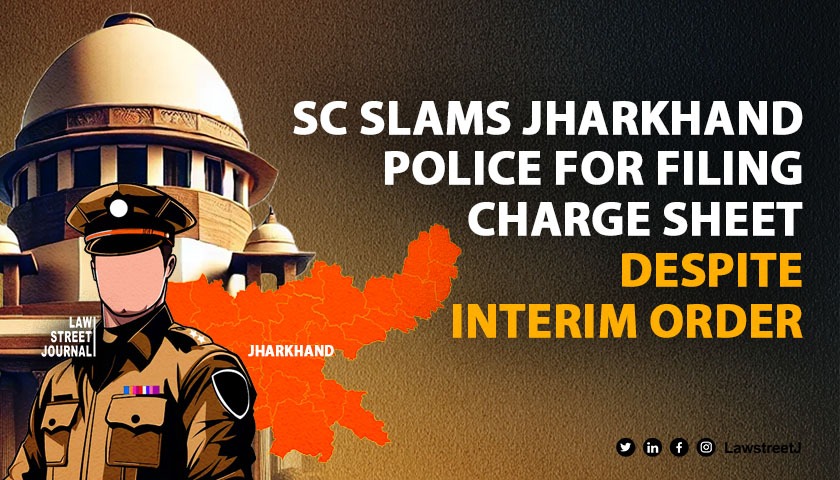New Delhi: The Supreme Court has delivered a significant judgment addressing the procedural conduct of the Jharkhand Police in filing a charge sheet against an accused despite an interim court order restraining coercive action.
A bench comprising Justice Abhay Oka and Justice Augustine George Masih examined a case involving the filing of a charge sheet against accused Satish Kumar Ravi in violation of the Court’s interim protection order.
Supreme Court Warns Jharkhand Police: No-Coercive Action Orders Must Be Respected
The Court critically reviewed a letter dated April 15, 2011, issued by the Additional Director General of Police, Jharkhand, which suggested that filing a charge sheet was permissible even when a court had directed no coercive action against an accused.
Commenting on this interpretation, the Court observed: “What is stated in paragraph 3 of the letter dated 15th April 2011 is completely illegal.” The bench directed the state counsel to bring these observations to the attention of the Additional Director General of Police.
Filing Charge Sheet Despite Interim Order: SC Issues Contempt Warning
The Court specifically noted that officers who file a charge sheet against an accused protected by a no-coercive action order “will expose themselves to contempt jurisdiction.”
After hearing statements from three police officers – the Deputy Superintendent of Police, the Investigating Officer, and the Station House Officer – who had filed the charge sheet, the Court accepted their apology and discharged the contempt notices.
The Court directed that the interim relief previously granted shall continue to operate and scheduled the petition for further hearing on January 17, 2025.
Advocates M. Shoeb Alam, Ujjwal Singh, and others appeared for the petitioner, while Vishnu Sharma and Madhusmita Bora represented the State of Jharkhand.
Case Reference: Satish Kumar Ravi vs State of Jharkhand (Special Leave to Appeal (Crl.) No. 9859/2023)











